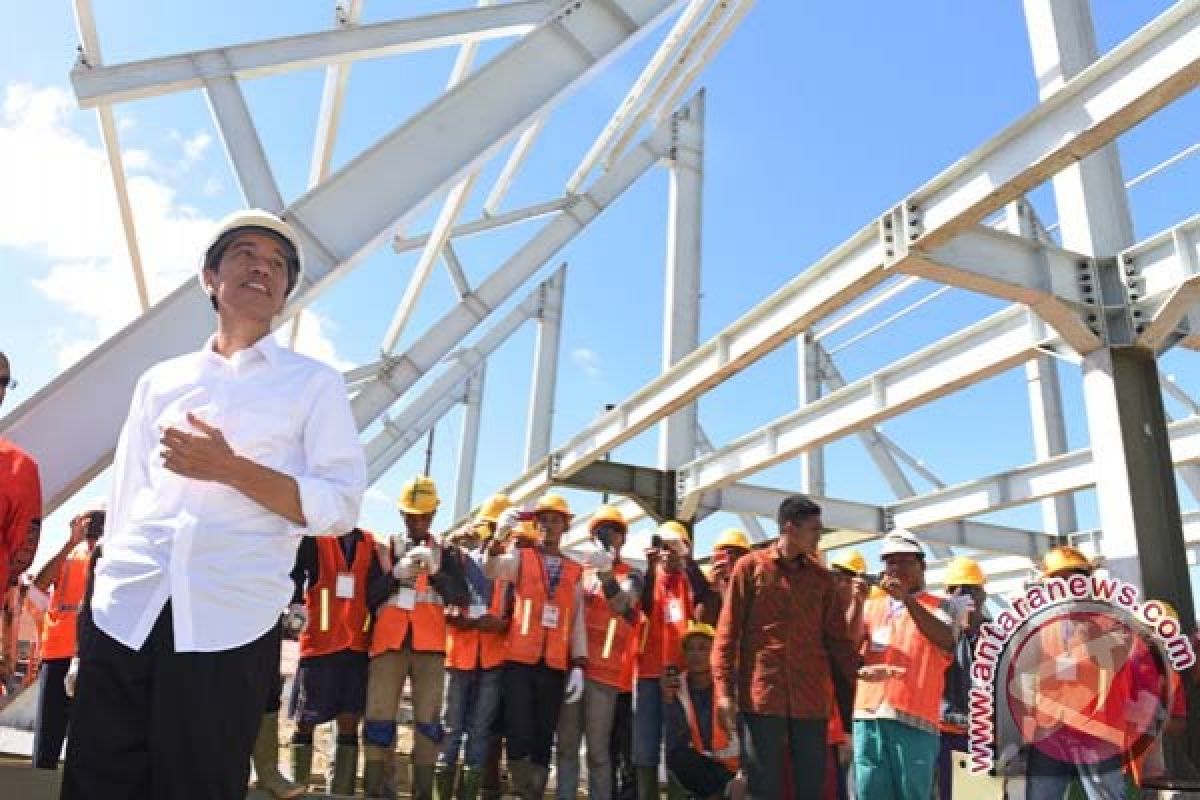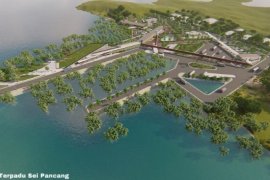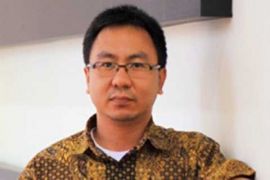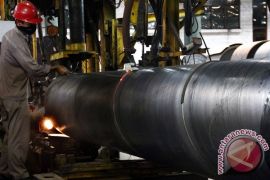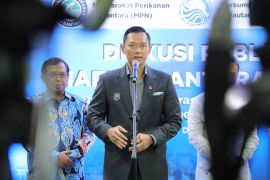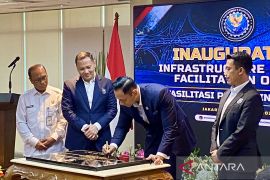Our budget will be primarily allocated to these sectors."Jakarta (ANTARA News) - Investment in infrastructure development can encourage accelerated economic growth and reduce poverty in Indonesia.
The lack of quality and quantity of infrastructure is one particular aspect of the economy that has hampered Indonesias economy and social development.
In addition, the lack of adequate infrastructure leads to exorbitant logistics costs, thereby reducing the countrys competitiveness and affecting the investment climate.
According to data from the Indonesian Chamber of Commerce and Industry, around 17 percent of a companys total expenditure in the country is absorbed by logistics costs.
Therefore, President Joko Widodo, better known as Jokowi, has stated that Indonesia will focus on infrastructure development to improve connectivity between the regions.
Jokowi affirmed that the 2015 budget will primarily focus on the development of infrastructure in the regions and will cover various sectors, including agriculture.
"Infrastructure development in the agricultural sector will include making improvements to the irrigation network, dams, as well as national, provincial, and city road networks, among others," he pointed out.
Other types of infrastructure development projects will include the establishment of facilities to connect regions, such as seaports and airports.
"Our budget will be primarily allocated to these sectors," the president affirmed.
Furthermore, the government will provide funds for regional development based on a presidential instruction scheme in order to support infrastructure development to encourage speedy economic growth, he remarked.
President Jokowi has explained that the allocated funding will vary from one region to another and will depend on their respective needs.
As the government is focusing on budget allocation for massive infrastructure development in numerous regions, it will help to transform Indonesia into a global construction magnet.
"Indonesia can become a construction magnet in both the ASEAN and globally," Yusid Toyib, the construction building director general at the Public Works and Housing Ministry, stated recently.
Toyib has urged national construction companies to improve their competitiveness, among others, by equipping themselves with a variety of requirements in order to face competition in the Southeast Asian region and at the international level.
He pointed out that budget allocation for the Public Works and Housing Ministry in the 2015 revised state budget reached Rp118 trillion.
"The budget allocation showcases the governments high commitment to the infrastructure sector," he affirmed.
Earlier, the Joint Implementation of the National Construction Indonesia (Gapensi) expressed hope that the bill on construction services, which is being deliberated by the House of Representatives, would push the national economy in future.
"The bill on construction services is expected to revitalize the role of construction services in driving the national economy to grow over 5.5 percent each year," Gapensi Secretary General Andi Rukman Karumpa remarked here on Saturday.
According to Karumpa, the slowdown in economic growth was not solely a macro issue but was also related to the readiness of the construction sector to implement infrastructure projects.
"Support for the infrastructure sector is very strategic to drive the nations economic growth," he affirmed.
The bill on construction services can increase the capacity and competitiveness of the nations construction industry and strengthen the absorption of government and private spending, Karumpa noted.
Speaking at a business luncheon in London last Thursday, Vice President M. Jusuf Kalla stated that the economic development in Indonesia will be focused on agriculture, manufacture, and infrastructure, among others.
Therefore, Kalla invited European entrepreneurs, including from Britain, to invest in Indonesia.
"I am here to reinforce the commitment of the Indonesian government to be one of the most competitive countries for investors, particularly in the field of agriculture and infrastructure," Kalla said, adding that the door for foreign investors remains open to invest in Indonesia.
On the occasion, British Trade and Investment Minister Francis Maude affirmed that his country was ready to become Indonesias partner in infrastructure development to boost its economy.
"The British government is ready to be a partner in the economic plan that will be executed by Indonesia in the near future," Francis noted.
In addition, Indonesia and the Netherlands have made every effort to intensify infrastructure development cooperation.
Early this month, Indonesian Embassy in The Hague held a forum titled, "Strengthening Indonesia-Netherlands Cooperation on Infrastructure Development" that focused on increasing cooperation in the port, fishery, logistical infrastructure, and railway sectors.
The forum brought together 170 businessmen from two countries that are engaged in the infrastructure sector.
In his opening address to the forum, Interim Charge dAffairs of the Indonesian Embassy in the Hague Ibnu Wahyutomo expressed hope that the forum would serve as a means to enhance cooperation between businessmen of the two countries.
"Similar to South Korea, China, and Japan, the Netherlands has significant experience and knowledge in the areas of cooperation," he pointed out.
Member of the Indonesian transportation ministers expert staff, Sudiharjo, said the forum served as a strategic means to discuss cooperation in infrastructure development, particularly in the transportation sector.
Meanwhile, Secretary General of the Dutch Infrastructure and Environment Ministry Seibe Reidstra shed light on the development of the major cities in the world, including Jakarta.
He added that adequate infrastructure, including hard and soft infrastructure, were needed to develop major cities, and cooperation with several parties is necessary to accomplish this.
(Uu.O001/INE/KR-BSR/F001)
Reporter: Otniel Tamindael
Editor: Priyambodo RH
Copyright © ANTARA 2015
